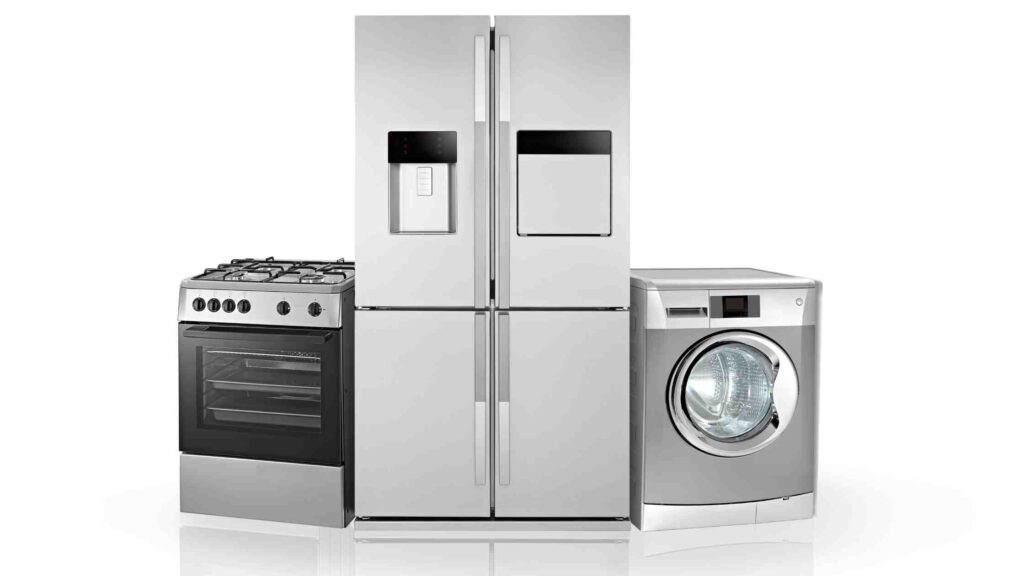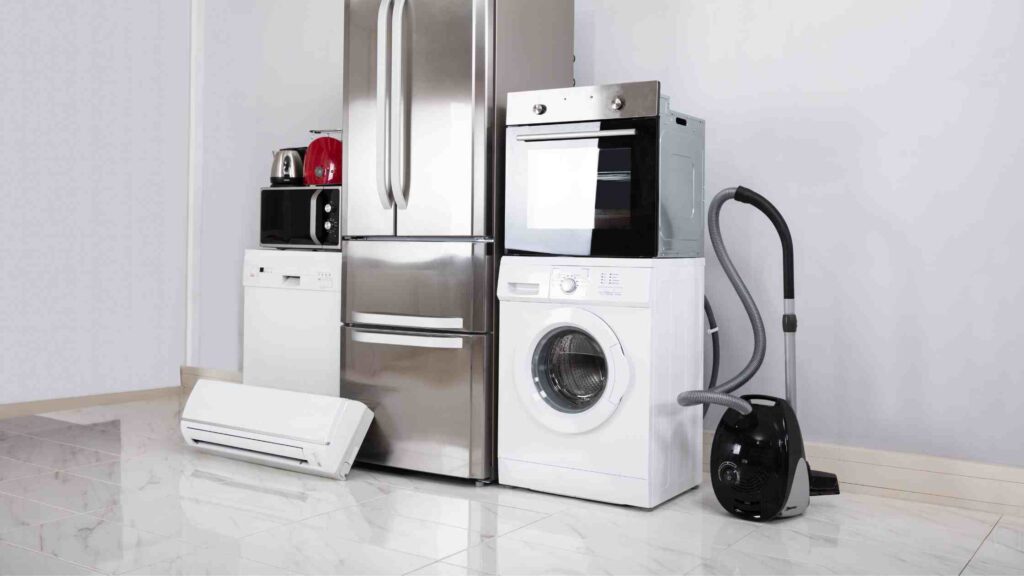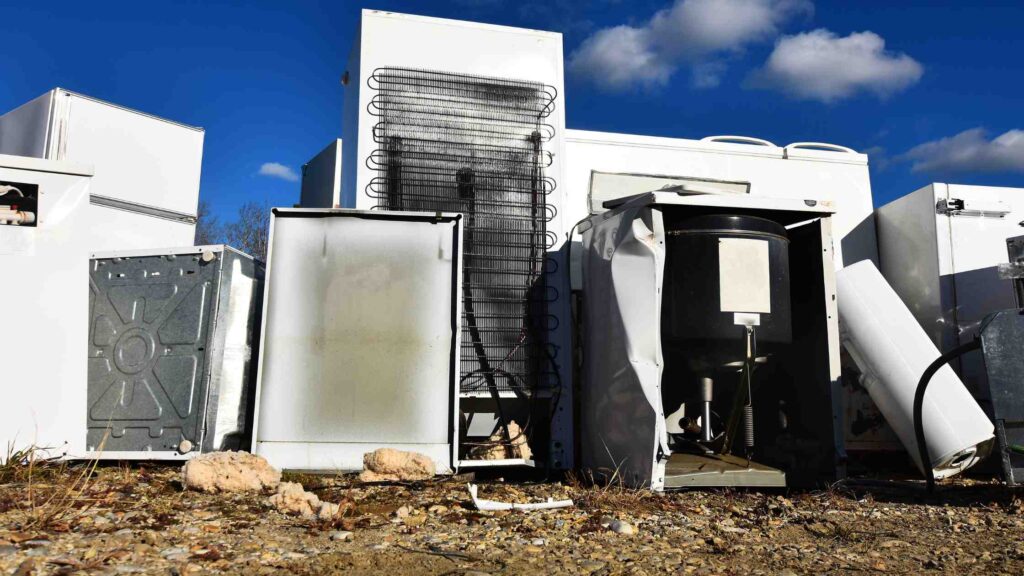Home appliance shortages will exist in 2022 among all brands and categories. They will persist and almost certainly get worse before getting better. As a result, if anybody has been renovating, moving, or simply trying to buy a kitchen appliance in the last two years, they have probably been affected by the appliance shortage. The global COVID-19 pandemic has brought to light underlying problems with supply chains worldwide. Why There is appliance shortage in 2023?
Furthermore, the shortages result from a perfect storm:
- The U.K.’s HGV driver shortage.
- The global shipping recession.
- Forecasts that China’s recent lockdown will hit the U.K. supply chain even harder.
Additionally, time spent indoors changes comfort requirements. Kitchen appliances have become increasingly important in daily life. In this article, we will look at this issue in depth.
DiscontinuedNews is impartial and independent, and every day, we create distinctive, world-class programs, news, and content that inform, educate and entertain millions of people worldwide.
Reasons for the appliance shortage

Home appliances have been difficult to obtain and purchase since the beginning of the COVID-19 pandemic. Even if you get your hands on a new appliance, there’s a good chance it will come with major technological downturns. This is due to ongoing manufacturing constraints. Here are the three primary reasons for the global shortage of home appliances:
- Increased frequency of demand
- Tin prices are skyrocketing.
- Semiconductor Scarcity
- Heavy Competition
Increased frequency of demand:
Demand for home products has skyrocketed as people prepare to spend more time at home than before. That demand did not diminish as the pandemic progressed. Appliance sales in the first half of 2021 were higher than in the first half of 2020.
Unfortunately, the increased demand came at a time when manufacturing around the world was suffering. Industrial shutdowns caused by the pandemic made it impossible for manufacturers to keep up with demand. It created a backlog from which the appliance sector has yet to bounce back.
Tin prices are skyrocketing:
One of the most recent developments obstructing global appliance supply is the rise in tin prices. Tin is widely used as a soldering agent in many industries. This has increased in price in the last year. Tin is now much more costly and difficult to obtain in general, further limiting the output of appliance makers.
Semiconductor Scarcity:
The shortage of semiconductor computer chips is one of the real causes of the appliance shortage. This is in addition to many other shortages presently influencing the global economy.
A shortage of semiconductor chips would have had minimal effect on the appliance industry a decade earlier. Appliances packed with smart technology are now the standard, forcing appliance manufacturers to rely on computer chips to make stuff like smart refrigerators.
However, the market for these semiconductor chips is extremely competitive. If the shortage of semiconductor chips persists, appliance makers may be forced to follow the lead of automobile manufacturers. They will also return to making appliances without all of the high-tech functionalities that consumers have come to expect.
Heavy Competition:
Even though we want to buy appliances in bulk to renovate numerous units at once, we might need help. This is because of the tough competition we might encounter from other people, such as American homeowners, private landlords, and contractors.
The housing market continues to be extremely competitive despite rising interest rates. The equity in the typical American home has increased by $52,000. A portion of this growth can be directly attributed to the expanding work-from-home trend. When given the option to work from home or in an office, 61% of Americans pick the former.
Many homeowners are engaged in either purchasing a large house to accommodate an office or simply renovating the home they already own. This is an outcome of working from home. In any case, a kitchen renovation is high on the priority list. More families gather in the kitchen for meals, work, study, or socialize as they spend more time at home.
Thus these are all the reasons for the appliance shortages.
Things to do During appliance shortage

- First and foremost, be prepared. We are possibly now prepared for longer installation wait times. If anyone plans a new kitchen, choose and order the appliances first. Also, if anyone is doing a full house renovation, consider shifting the schedule so that the kitchen is installed last.
- Then look into independent retailers. Major retailers may be out of stock, but little-known, out-of-the-way retailers may still have the item we are looking for. There may also be the occasional physical store that needs a web page. But does have stock. So, even if there are fewer appliances available, do the research, and it may pay off.
- Adding our name to the waiting list and waiting to be notified. Many retailers allow you to sign up for a waitlist for out-of-stock appliances. Of course, this is just an option if you wait to require the appliance. Also, when our appliance returns to stock, act quickly to secure it! The retailer may only have a small amount of stock during this appliance shortage.
- Then reconsider your options. We have set our sights on our ideal appliance and need help getting it. In that case, consider various options. We could find a better appliance that is very similar or less expensive.
- Finally, consider repairing the current appliance. Of course, a new appliance is an ultimate goal. Why don’t we repair the existing appliance if we can’t find one? It’s both better for the environment and less expensive.
Whirlpool appliance shortage
Whirlpool is one of the companies badly affected by the appliance shortage that emerged at the beginning of the pandemic. According to Whirlpool CEO Marc Bitzer, buyers may have to wait more than six weeks after placing an order for their appliances. They have to wait at least through 2022 and possibly into 2023. While the company works to produce more appliances, there is a large backorder list to deal with.
Several businesses are coping with the current appliance shortage. Several factors are limiting current appliance production and the current backlog of orders. Several factors contribute to the scarcity of appliances, including growing demands from the pandemic, order backlogs from quarantine periods, delivery delays, and shipment issues.
When shopping for appliances, many customers choose well-known brand names. Buyers are now searching for other familiar names since Whirlpool appliances are off the shelves.
Bosch appliance shortage
Bosch stock concerns aren’t going away any time soon. This is the scenario according to our industry professionals who work in the purchasing divisions of the biggest appliance retailers in the nation. Moving into 2022, there will be very little stock, and it could even get worse than in 2021. The following dishwasher models’ back order lead times may be expected to be longer than usual:
- Backorders for 800 Series dishwashers are expected to take nine months.
- Dishwashers from the 500 Series are due in about 6 to 9 months.
- Dishwashers from the 100 Series are due in around a month or two.
The availability of certain Bosch refrigerators is good news. Many preferred dealers have stainless and black stainless 500 series refrigerators in stock. But most backorders for counter-depth models will arrive in around 3 weeks. We should check back frequently for additional appliance industry insider news.
How long will the scarcity of supplies last?
Most households have seen appliance delivery delays of 1 to 14 months. It mostly depends upon the brand. A few luxury brands are coping with appliance shortages, backlog problems, and delivery delays.
According to analysts, global supply chain shortages and snags may level out in 2022 or 2023 unless Americans stop buying so much. According to the news, this is being fueled by a boom in U.S. household consumption that continues to exceed supply.
When Will Appliance shortage end in 2023?
Inflation is expected to remain above the trend in 2023. Energy prices and labor costs are forecast to continue being the primary inflation drivers in the appliance industry.
Some analysts forecast that the housing market downturn will worsen in 2023 as interest rates rise. Both new and replacement buyers may be equally impacted.
A further decline in the housing market will result in lower demand, normally resulting in lower prices. However, appliance prices are expected to stay high due to high energy prices, ongoing semiconductor shortages, and lockdowns in China.
Conclusion
The appliance shortage also had an immediate impact on economies, society, and people’s lives. Since the pandemic, many people have spent more time at home, working from home, and home-schooling, which has resulted in the emergence of kitchen appliances.
Order the appliances as early in the remodeling process as possible. We will have a much wider choice if we can be flexible with some of our appliance options. Independent dealers frequently have appliances in stock, while big-box stores have a waitlist.
These are all simple suggestions that can help us find the required appliances. Let’s hope that the appliance shortages will be over soon.
